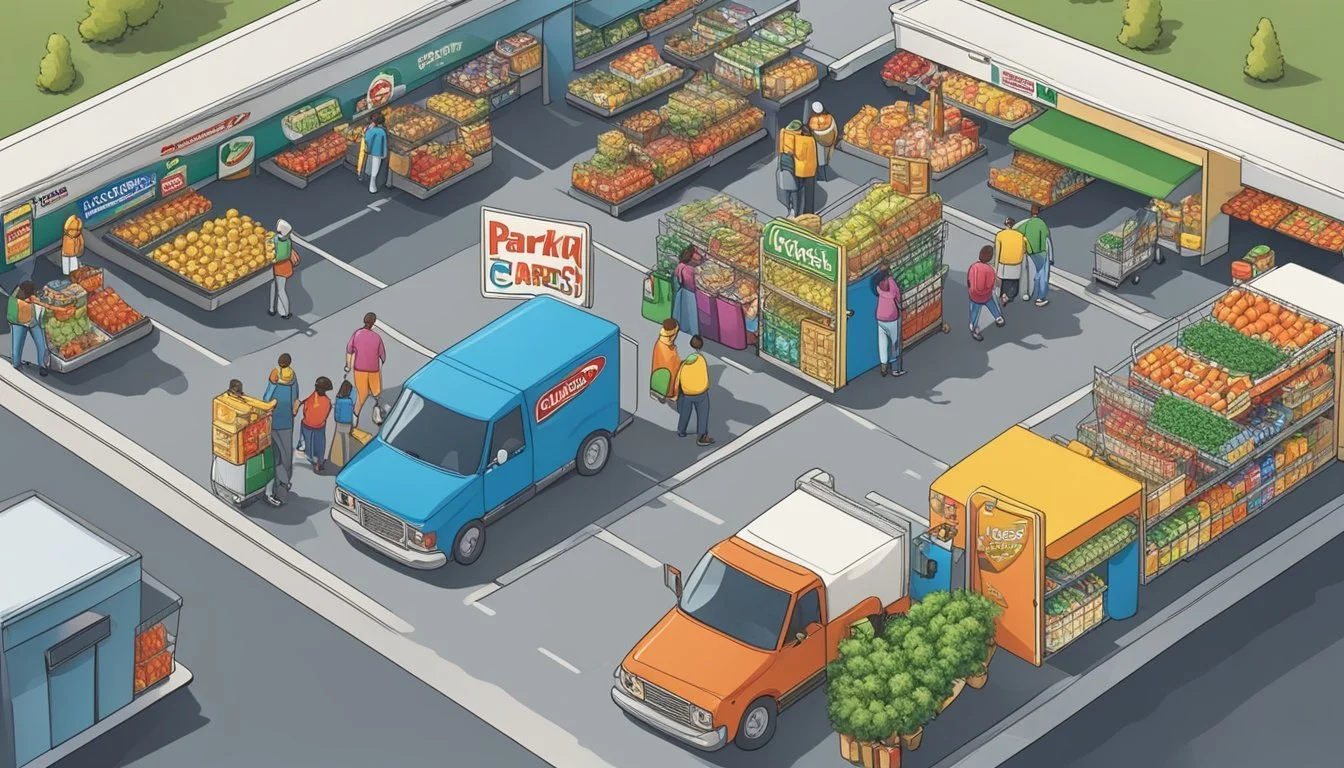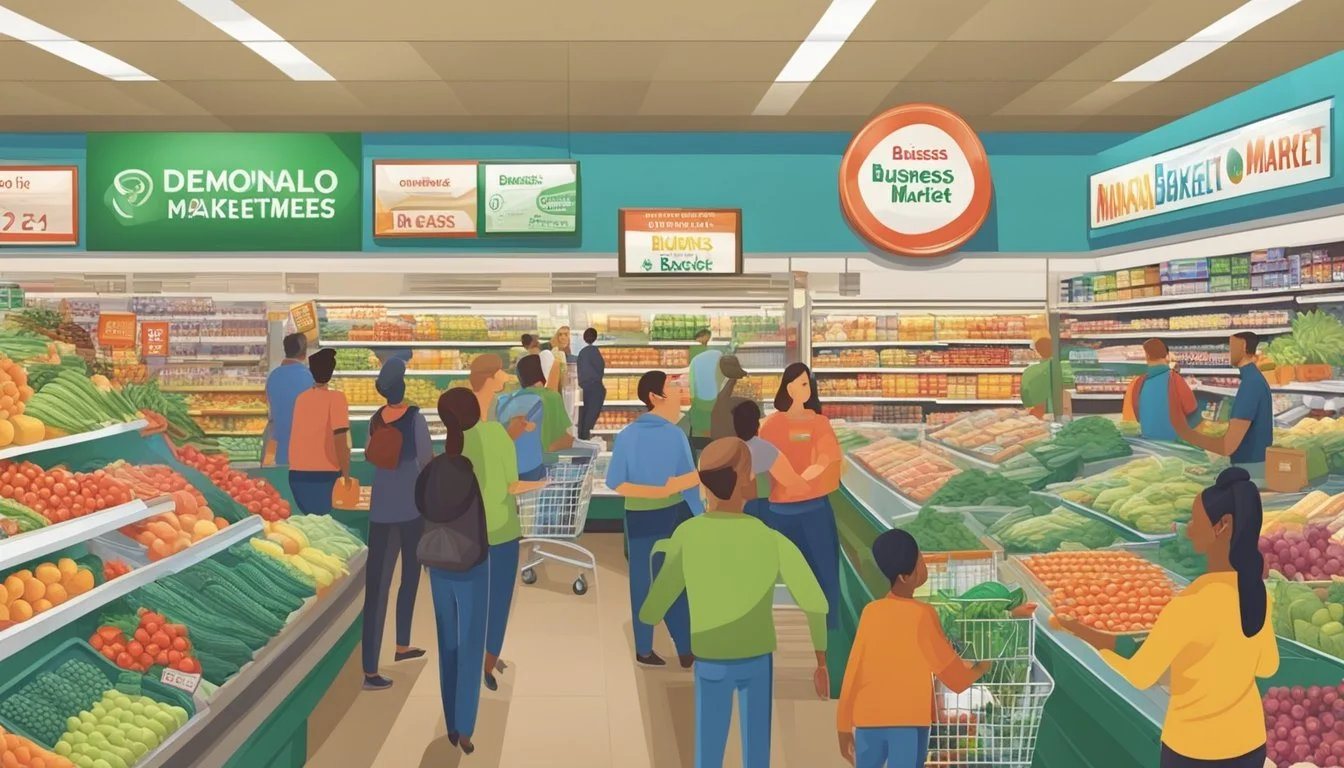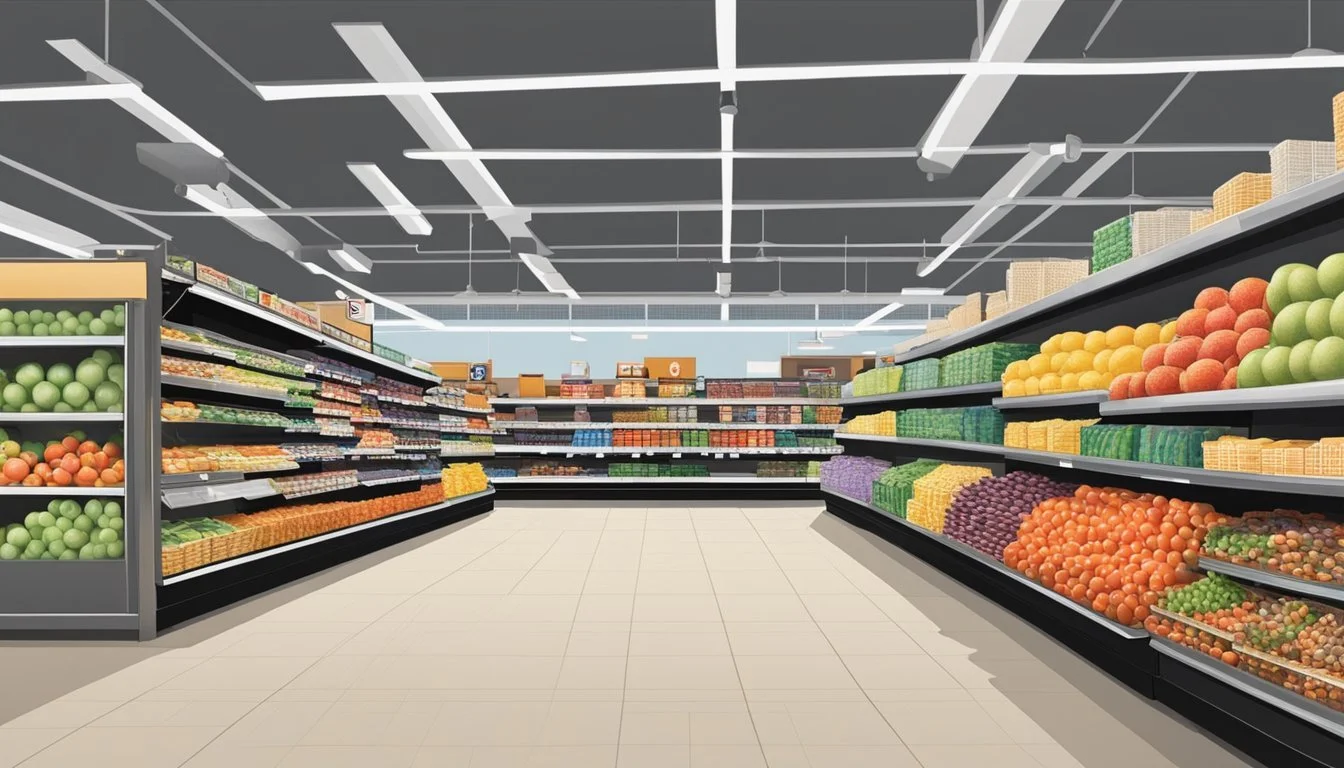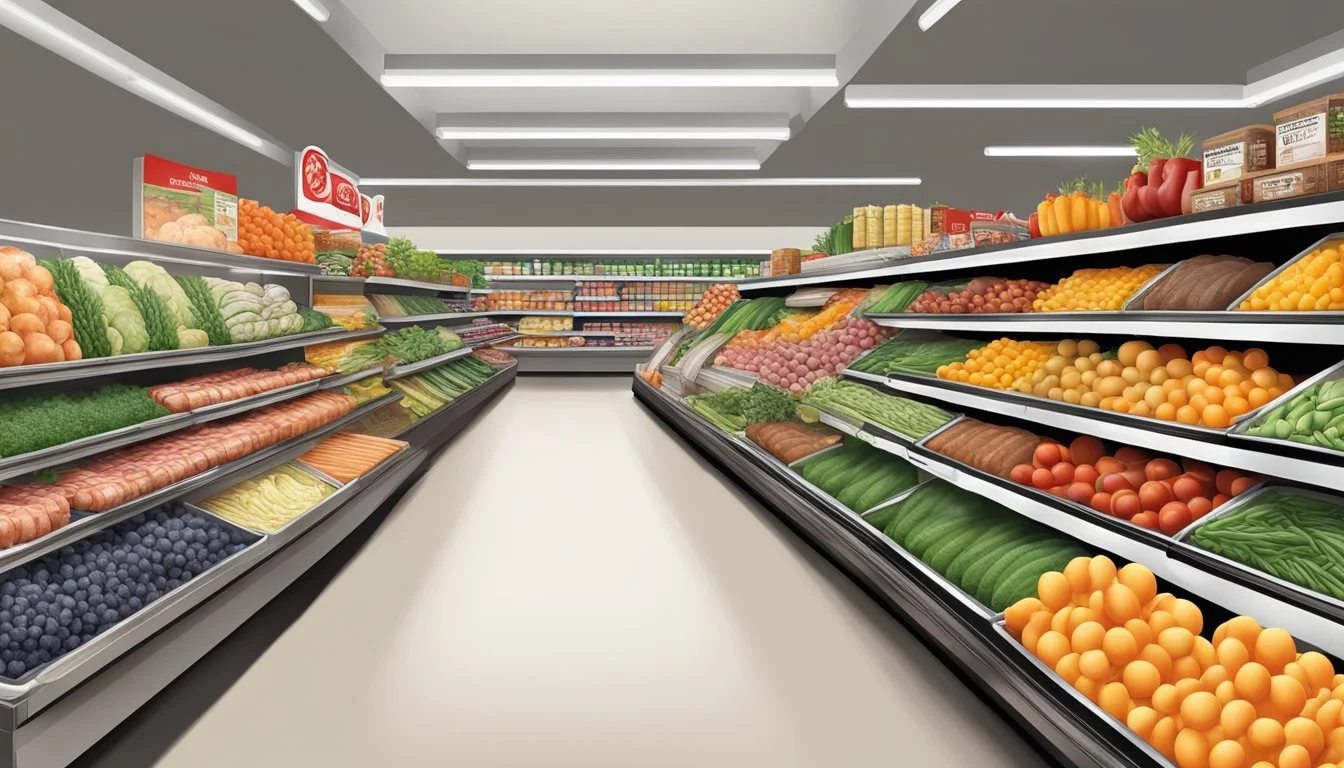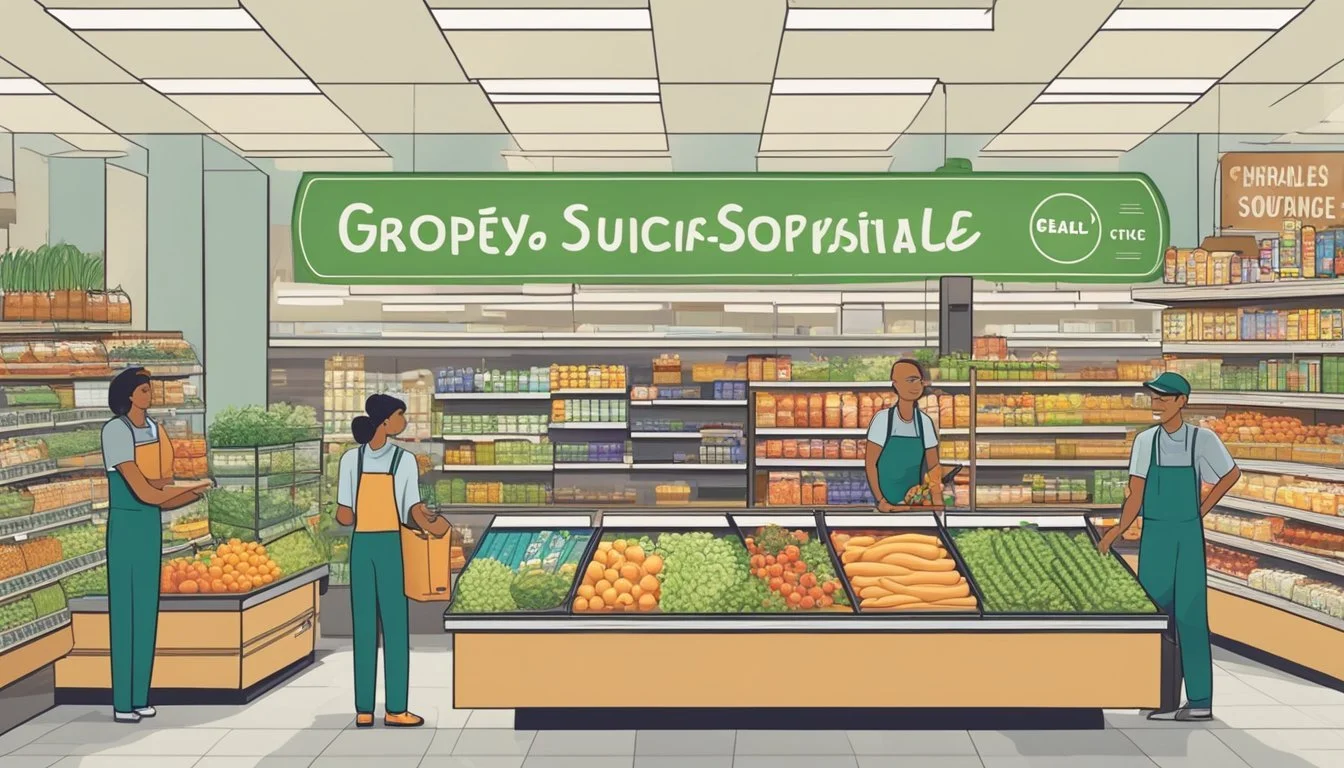Target vs Demoulas Market Basket
A Comprehensive Comparison of Price, Quality, and Selection
When it comes to grocery shopping, consumers often seek the best value for their money. Target and Demoulas Market Basket are two popular options, each with its own strengths and loyal customer base. Target offers a wide range of products beyond groceries, while Market Basket is known for its focus on low prices and customer service.
For budget-conscious shoppers looking to maximize savings on groceries, Demoulas Market Basket generally offers lower prices compared to Target. Market Basket's commitment to keeping costs down has earned it a reputation as a no-frills supermarket that prioritizes affordability. Target, on the other hand, provides a more upscale shopping experience with a diverse selection of merchandise beyond just groceries.
Choosing between these two stores ultimately depends on individual preferences and needs. Target appeals to those who value convenience and enjoy a one-stop shopping experience for household items, clothing, and groceries. Market Basket caters to customers primarily focused on grocery savings and traditional supermarket offerings.
History and Background
Demoulas Market Basket and Target have distinct origins rooted in family businesses and strategic expansions. Both companies evolved from humble beginnings to become significant players in the retail landscape.
Demoulas Market Basket Origins
Demoulas Market Basket traces its roots to 1917 when Greek immigrants Athanasios and Efrosini Demoulas opened a small grocery store in Lowell, Massachusetts. The shop specialized in fresh lamb and catered to the local Greek community.
In 1954, brothers Telemachus and George Demoulas purchased the store from their parents for $15,000. They expanded the business rapidly, opening additional locations across New England.
The company faced internal challenges in the 1990s with a legal battle between Arthur S. Demoulas and Arthur T. Demoulas over ownership and control. This dispute culminated in 2014 with widespread employee protests and customer boycotts.
The Evolution of Target
Target's history began in 1902 when George Dayton founded Goodfellow Dry Goods in Minneapolis, Minnesota. The company rebranded as Dayton's Dry Goods Company in 1903 and later became Dayton Corporation.
In 1938, Dayton Corporation weathered the Great Depression and continued to grow. The company opened its first Target store in 1962 in Roseville, Minnesota, as a discount chain subsidiary.
Target expanded rapidly throughout the 1960s and 1970s, becoming the largest division of Dayton Corporation. In 2000, the parent company renamed itself Target Corporation, reflecting the brand's prominence.
Today, Target operates over 1,800 stores across the United States, offering a wide range of products from groceries to clothing and electronics.
Business Models and Management
Target and Market Basket operate with distinct business philosophies, leadership structures, and employee management approaches. These differences shape their corporate cultures and market positioning.
Market Basket's Employee-Centric Approach
Market Basket prioritizes employee welfare through a profit-sharing plan and generous benefits. The company offers competitive wages and promotes from within, fostering long-term loyalty among its workforce.
Market Basket's ownership structure involves the Demoulas family, with Arthur T. Demoulas serving as CEO. This family-run business model emphasizes personal connections and community involvement.
The retailer's board of directors includes family members and long-time employees, ensuring decisions align with the company's core values. This approach has contributed to Market Basket's high employee retention rates and strong customer satisfaction scores.
Target's Corporate Strategy
Target operates as a publicly-traded corporation with a more traditional corporate structure. The company's board of directors includes external business leaders and industry experts.
Target's CEO oversees a hierarchical management system with regional and store-level leadership. The retailer focuses on efficiency and data-driven decision-making to optimize operations and profitability.
Employee benefits at Target include healthcare options, 401(k) plans, and career development programs. The company invests in technology and innovation to enhance its supply chain and customer experience.
Target's business model emphasizes brand partnerships, exclusive product lines, and a multi-channel retail approach. This strategy aims to differentiate Target from competitors and drive growth in both physical and digital sales channels.
Store Layout and Shopping Experience
Target and Market Basket offer distinct store layouts and shopping experiences. Each retailer employs different strategies to guide customers through their aisles and product offerings.
The Aisles of Market Basket
Market Basket stores feature a no-frills, functional layout. Wide, clearly labeled aisles make navigation straightforward for shoppers. The stores maintain a clean, bright atmosphere with simple decor. Market Basket's layout prioritizes efficiency, allowing customers to quickly locate and access products.
Product placement follows a logical organization, with related items grouped together. Fresh produce, dairy, and meats are typically positioned along the store's perimeter. Shelves are well-stocked and neatly arranged. Market Basket's layout caters to shoppers who value a direct, hassle-free grocery experience.
Navigating a Target Store
Target stores offer a more diverse shopping experience. The layout combines grocery sections with other departments, creating a one-stop-shop atmosphere. Aisles are wide and well-lit, with eye-catching displays and signage guiding customers through different product categories.
Target's grocery section often occupies a significant portion of the store, featuring both fresh and packaged foods. The retailer incorporates modern features like self-checkout stations and online order pickup areas. Target's layout encourages browsing, with strategically placed impulse-buy items and seasonal displays throughout the store.
Pricing and Value Proposition
Target and Demoulas Market Basket employ distinct pricing strategies, offering different value propositions to their customers. Their approaches to pricing and quality impact overall affordability and savings potential for shoppers.
Comparison of Pricing Models
Target utilizes a hybrid pricing model, combining everyday low prices with frequent promotions and sales. The retailer offers a mix of national brands and private-label products across various price points. Target's REDcard provides an additional 5% discount on most purchases.
Market Basket, on the other hand, focuses on consistently low prices across the board. The chain's "More For Your Dollar" motto reflects its commitment to affordability. Market Basket's prices are typically 18% lower than the average supermarket, potentially saving a family $2,300 annually on groceries.
Market Basket achieves these low prices through efficient operations and limited marketing expenses. The company prioritizes passing savings directly to customers rather than spending on extensive advertising campaigns.
Evaluating the Cost of Quality
Target emphasizes product quality and variety, particularly in its private-label offerings like Good & Gather and Up & Up. These brands often provide a balance between affordability and quality, appealing to budget-conscious shoppers seeking higher-end alternatives.
Market Basket focuses on delivering quality products at rock-bottom prices. The chain's no-frills approach allows it to maintain low operating costs, which translates to savings for customers. Market Basket's ability to keep prices low while maintaining product quality has helped it combat inflationary pressures effectively.
Both retailers offer bulk purchasing options, though Market Basket's pricing on larger quantities tends to be more competitive. Target's bulk offerings often come through its partnerships with warehouse-style retailers like Costco.
Product Assortment and Quality
Target and Demoulas Market Basket offer distinct product selections to cater to different customer needs. Target's expansive variety contrasts with Market Basket's emphasis on fresh, high-quality groceries.
Target's Product Diversification
Target's grocery department features a wide range of options, from everyday essentials to specialty items. The store stocks national brands alongside its own private labels like Good & Gather and Market Pantry. Target's produce section offers a selection of fruits and vegetables, though it may not be as extensive as dedicated grocery stores.
Target's bakery provides fresh bread, pastries, and cakes. The meat department includes pre-packaged cuts and some fresh options. Dairy and seafood selections are available but may be more limited compared to full-service supermarkets.
A unique aspect of Target's grocery offering is its integration with non-food items, allowing customers to combine grocery shopping with other retail needs.
Market Basket's Focus on Freshness
Demoulas Market Basket prioritizes fresh, high-quality produce, meat, and dairy products. The store is known for its extensive selection of fruits and vegetables, often sourced from local farms when possible. This commitment to freshness extends to its meat department, which offers a wide variety of cuts and often includes a full-service butcher counter.
Market Basket's bakery produces fresh bread, pastries, and custom cakes daily. The store's dairy section is comprehensive, featuring both staples and specialty items. Seafood offerings are typically robust, with a mix of fresh and frozen options.
The store also caters to gourmet tastes with a selection of specialty cheeses, imported goods, and organic products. Market Basket's focus on grocery essentials means customers can find a broader range of food items compared to Target.
Customer Experience and Services
Target and Demoulas Market Basket take different approaches to customer experience. Both aim to satisfy shoppers but employ distinct strategies for service and loyalty.
Customer Service Practices
Target emphasizes a modern, efficient shopping experience. Employees wear recognizable red shirts and are trained to be helpful yet unobtrusive. Self-checkout lanes are widely available, allowing customers to complete purchases quickly.
Market Basket focuses on personalized service. Employees often develop long-term relationships with regular customers. Managers are frequently seen on the sales floor, actively assisting shoppers.
Target offers a robust mobile app for digital coupons and deals. Market Basket relies more on traditional paper circulars and in-store promotions.
Additional Services and Features
Target provides a wider range of services beyond groceries. Many locations include:
Starbucks cafes
CVS pharmacies
Mobile phone centers
Order pickup and drive-up options
Market Basket concentrates primarily on groceries. Additional features are limited but may include:
In-store butchers
Fresh seafood counters
Local product sections
Target's REDcard offers 5% off purchases and free shipping. Market Basket does not have a formal loyalty program but maintains customer loyalty through consistently low prices.
Market Presence and Expansion
Target and Demoulas Market Basket have distinct market presences shaped by their unique expansion strategies. Both retailers have carved out influential positions in their respective regions, impacting local communities and the broader retail landscape.
Market Basket's Community Influence
Market Basket operates 90 supermarkets across New England, with stores in Massachusetts, New Hampshire, Maine, and Rhode Island. The chain has deep roots in the region, originating from a single grocery store in Lowell, Massachusetts in 1917. Market Basket's expansion has been steady but focused, maintaining a strong presence in its home territory.
The company's growth strategy emphasizes community connections and customer loyalty. Market Basket stores are often anchor tenants in local shopping centers, contributing to the economic vitality of small towns and suburban areas. Their low-price model and employee-friendly policies have cultivated a devoted customer base, helping the chain compete effectively against larger national retailers.
Target's National Footprint
Target boasts a much larger national presence, with stores in all 50 states. The retailer's expansion strategy has focused on both urban and suburban markets, adapting store formats to fit diverse locations. Target has over 1,800 stores across the United States, giving it significant market share in the general merchandise retail sector.
The company's growth has been fueled by a mix of new store openings and strategic acquisitions. Target has invested heavily in its e-commerce capabilities, blending its physical store network with digital offerings. This omnichannel approach has allowed Target to compete effectively with other national chains and online retailers.
Target's expansion has included the development of smaller-format urban stores, designed to penetrate densely populated areas where traditional big-box locations are impractical. This flexibility has enabled Target to establish a presence in key metropolitan markets, including Boston, where it competes directly with regional players like Market Basket.
Technological Integration and E-Commerce
Target and Demoulas Market Basket take vastly different approaches to technology adoption and online shopping capabilities. Their strategies reflect contrasting priorities in serving customers and adapting to digital trends in grocery retail.
Tech Advancements in Shopping
Target embraces cutting-edge retail technology. The company offers a user-friendly mobile app with features like in-store navigation, digital coupons, and contactless payments. Target's stores feature self-checkout kiosks and price-check scanners. The retailer also utilizes advanced inventory management systems and data analytics to optimize product availability and personalize marketing.
Market Basket maintains a more traditional approach. The chain focuses on in-store experiences rather than technological bells and whistles. Market Basket stores generally lack self-checkout options or mobile payment systems. The company prioritizes personal service and low prices over technological advancements.
Online Presence and Ordering Systems
Target provides a robust e-commerce platform. Customers can shop the full product range online, with options for home delivery and in-store pickup. The company has invested in fulfillment centers and uses stores as mini-distribution hubs to facilitate fast and efficient online order processing.
Market Basket's online presence is minimal. The company does not offer e-commerce capabilities on its website. Market Basket focuses exclusively on in-store shopping, eschewing online ordering or delivery services. This approach aligns with the chain's traditional business model but may limit its appeal to tech-savvy consumers seeking convenient digital shopping options.
Corporate Responsibility and Ethics
Target and Market Basket approach corporate responsibility and ethics differently, with distinct impacts on their communities, employees, and customers. Their strategies reflect varying priorities in social engagement and business practices.
Community Engagement and Sustainability
Target emphasizes corporate social responsibility through its Target Foundation, which focuses on equitable community development. The company has committed to reducing its carbon footprint by 30% by 2030 and aims for 100% sustainably sourced cotton by 2025. Target also partners with local food banks and has donated millions of pounds of food to communities in need.
Market Basket takes a more localized approach to community engagement. The company is known for supporting regional food banks and sponsoring local sports teams. Market Basket stores often feature products from local farmers and suppliers, promoting regional economic growth. The company has implemented energy-efficient lighting and refrigeration systems in its stores to reduce environmental impact.
Labor Practices and Consumer Trust
Market Basket gained national attention in 2014 when employees organized a strike to reinstate beloved CEO Arthur T. Demoulas. This event highlighted the company's strong employee loyalty and fair labor practices. Market Basket offers competitive wages, profit-sharing programs, and internal promotion opportunities. The company's low-price strategy and employee treatment have fostered significant consumer trust.
Target has faced criticism for labor practices, including a $3.74 million settlement in 2018 over alleged hiring discrimination. The company has since implemented diversity and inclusion initiatives. Target offers a $15 minimum wage and expanded benefits, including tuition assistance. The retailer's focus on ethical sourcing and transparency in its supply chain has helped maintain consumer trust.
Review and Ratings
Target and Demoulas Market Basket have cultivated distinct reputations among shoppers. Recent surveys and expert analyses provide insights into how these retailers measure up in terms of customer satisfaction and overall performance.
Consumer Satisfaction Metrics
Market Basket consistently ranks high in customer satisfaction surveys. In 2022, a consumer data firm named Market Basket the top grocery store for handling inflation, considering factors like affordability and product quality. Customers praise Market Basket's low prices and high-volume sales approach.
Target receives positive feedback for its clean stores and diverse product range. Shoppers appreciate the retailer's mix of groceries and general merchandise. Target's customer satisfaction scores often reflect its strength in offering a one-stop shopping experience.
Both chains have loyal customer bases, but Market Basket's regional focus allows for a more personalized shopping experience in New England.
Expert Opinions and Surveys
Industry experts recognize Market Basket's unique business model. The chain's employee-centric culture gained national attention during the 2014 protests, demonstrating strong worker and customer loyalty.
Target's brand strength is frequently highlighted in retail analyses. Experts note Target's success in blending grocery offerings with its broader merchandise selection, appealing to a wide demographic.
Survey data shows Market Basket outperforming many competitors in affordability metrics. Target, while not always the lowest-priced option, scores well in perceived value due to its quality-to-price ratio across various product categories.
Consumer reports often praise Market Basket's focus on essential grocery items at competitive prices. Target receives high marks for its private-label brands and trendy product collaborations.
Comparative Analysis
Target and Market Basket offer distinct shopping experiences for grocery consumers. Each retailer has carved out a unique position in the market through their pricing strategies, product selection, and overall approach to customer service.
Strengths and Weaknesses of Each Brand
Target excels in its diverse product range, offering groceries alongside clothing, electronics, and home goods. Its clean, modern stores attract a broad demographic. Target's private label brands provide quality alternatives at competitive prices. However, its grocery selection can be limited compared to dedicated supermarkets.
Market Basket focuses solely on groceries, boasting an extensive selection of fresh produce, meats, and local products. Known for rock-bottom prices, Market Basket consistently beats competitors on cost. Its no-frills approach and employee-friendly policies have cultivated a fiercely loyal customer base. The downside is a potentially cluttered shopping environment and fewer upscale options.
Final Recommendations
For budget-conscious shoppers seeking the lowest grocery prices, Market Basket is the clear winner. Its commitment to affordability without sacrificing quality makes it ideal for families and value-seekers. Market Basket's wide selection of fresh foods also appeals to home cooks and health-conscious consumers.
Target is better suited for convenience-oriented shoppers who prefer a one-stop shopping experience. Its stylish ambiance and curated product mix attract younger, urban consumers. Target's strengths lie in its ability to combine groceries with other retail needs, making it perfect for quick trips or lifestyle shopping.
Ultimately, the choice depends on individual priorities. Price-sensitive customers will find unbeatable deals at Market Basket, while those valuing convenience and a modern shopping environment may prefer Target.


